Air ticket, rice, diesel, pay TV, pure water — how inflation is hurting Nigerians on all sides
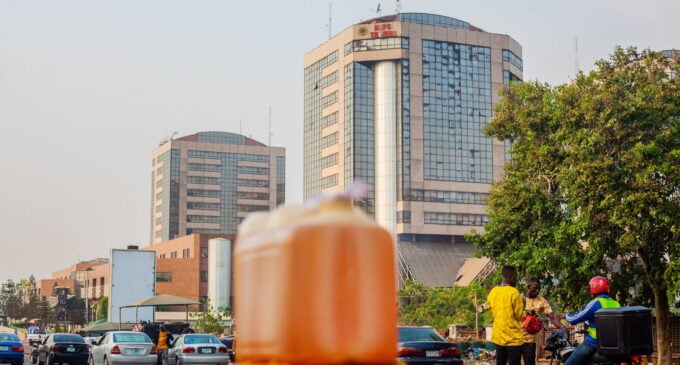
Since the pandemic broke out in 2020, Nigerians have been reeling from one hardship to the other: from lockdown and its economic effects to the EndSARS protest to a full-blown recession — and now to war in Ukraine affecting a nation like Nigeria, 8,000 kilometres away.
As of 2020, a good number of people across the world, including Bretton Woods institutions, projected that the world would be a better place by 2022. Little did they know that most of the world, including Nigeria, would still be grappling with the more and more increase in prices, beyond the control of any organisation, government, or private individual.
Back in 2020, when the bag of 50kg of rice, arguably the most popular staple in Nigeria, hit N26,000, Nigerians complained, blamed it on government policies; immature closure of borders for food import when the local market was regarded as “not ripe enough” to sustain the nation.
By 2021, President Muhammadu Buhari, in his independence day speech, promised Nigerians that food prices would soon crash across the nation.
The president said, at the time, that the scarcity was artificial, and caused by “unpatriotic hoarding”. He ordered the National Food Reserve Agency to work with security agencies, and the Nigerian Commodity Exchange to fix the problem.
But as Nigerian history teaches, food problems do not respond to orders — inflation is not a respecter of persons.
INFLATION HITTING THE POOR
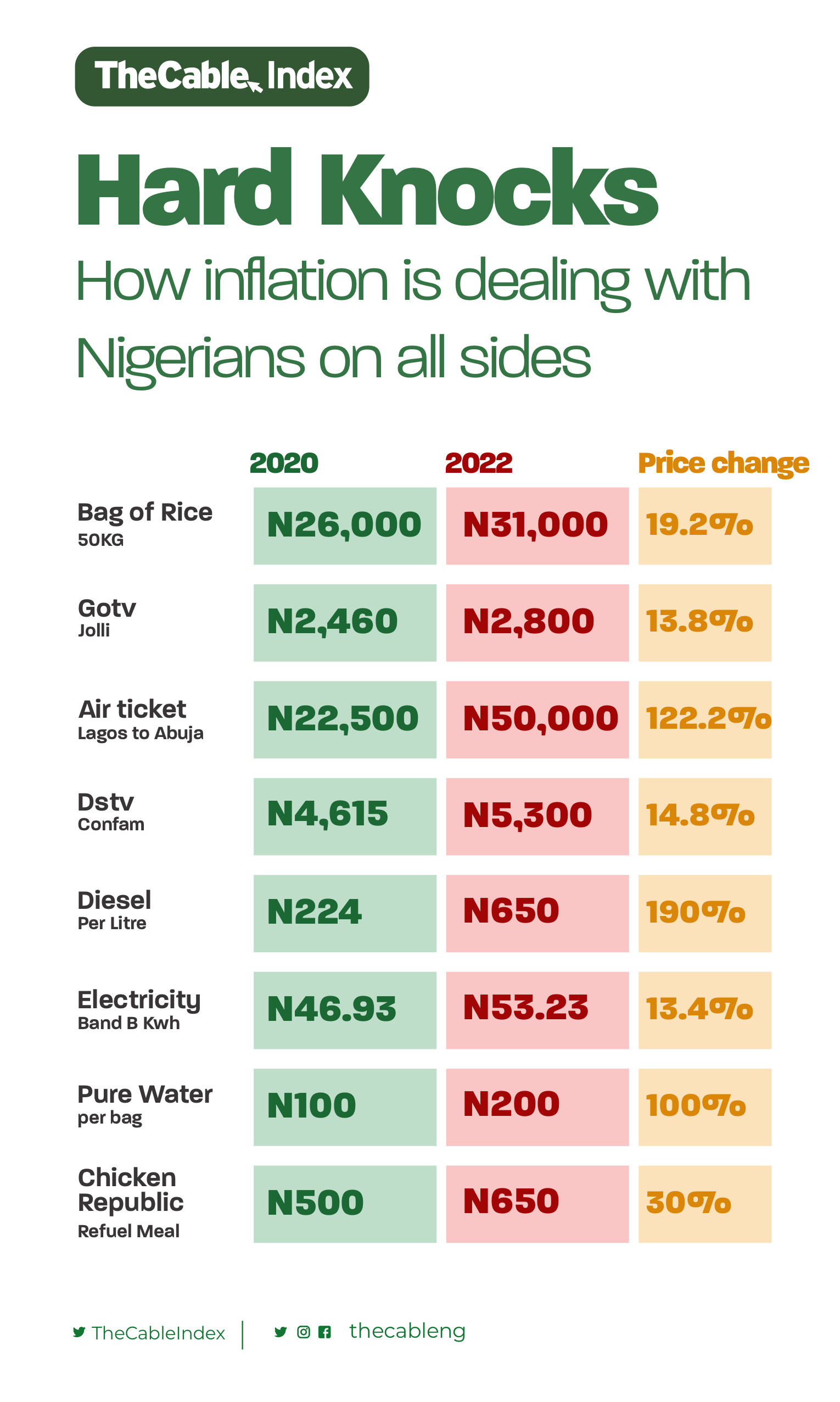
This is evident in the fact that every sphere of the Nigerian life has been affected by inflation. Every stratum of national consciousness has dealt a hard blow — the poor, the rich, and the not-so-middle class.
Take water for example; one sachet of water used to go for N5. The target market for this product was the poor and some part of the middle class. In just two years, the retail price of “pure water” has at least doubled. Retailers now sell for N10 per sachet or N20 per sachet. In some neighbourhoods in Lagos, it is sold at two sachets for N30. The cheapest anyone would find is double the price in 2020.
Chicken Republic is one of the most patronised food outlets in Nigeria today. On social media, Nigerians actually make posts speaking of some of their favourite offerings from the food vendor — the most popular being the Chickwhizz meal and the refuel packages. Most of Chicken Republic’s offerings are loved because they are considered cheap and value for money.
However, in the past two years, the prices of these meals have also increased by at least 30 percent. The refuel meal which cost only N500 for a plate of rice and chicken has gone up to N650 — and in some locations, N700.
THE RICH — AND MIDDLE CLASS — ALSO CRY
In Nigeria, it is believed that only the rich travel by air, the poor commute by road to save cost. While this in itself is an aberration, the security situation in the country is changing that. People no longer fly because they can afford it; many now do because of kidnappings and killings on the road.
If we insist that flying is for the rich, then even the rich are being hit hard by flight prices. Between 2020 to 2022, the average price of air tickets has doubled.
In 2020, the cheapest flight in the country was about N16,500 from Lagos to Akure. Today, that same flight cost N37,000 on March 22, 2022. Lagos to Abuja, regarded as the most popular route, has jumped from N22,500 to N50,000. Most of that jump happened in the last two months, giving little room to adjust to the shocks. If flying was indeed for the rich, it just became even more exclusive.
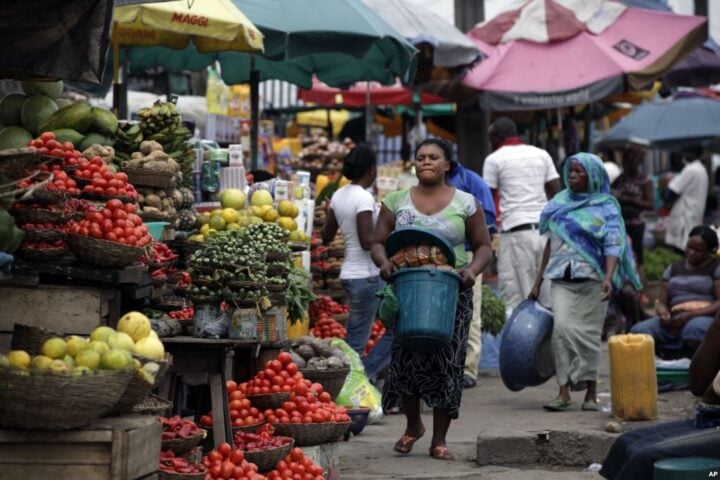
Food prices are going up, not down as promised by the government
In 2011, the African Development Bank (AfDB) estimates showed that the Nigerian middle-class made up only 23 percent of the country’s population. This is small, compared to the global average of near 50 percent.
However, it’s a jump from what the case in Nigeria was, about seven to 10 years earlier. According to the World Bank, the middle class in Nigeria made up only 13 percent of the nation’s population in 2003. But from 2014 to date, the middle class in Nigeria has worn thin and keeps getting smaller as poverty rises.
According to the UN, the middle class is made up of people who spend between $10 (N5,780) to $100 (N57,800) per day. For AfDB, the middle class in Africa is made up of people who spend between $2 (N1,156) and $20 (N11,560) per day.
Access to information is considered a basic human right; information should not discriminate against the poor, rich or middle-class. This is one of the reasons why numerous mass media tools exist from radio to newspapers to cable TV.
In Nigeria, cable TV is one aspect that covers both the rich, poor, and the middle class. Unfortunately, inflation in the country has not spared this sector of the economy. In the last week, Multichoice also had to adjust for inflation, pushing prices higher than its 2020 levels.
Price changes show that cable TV in Nigeria has increased by about 15 percent in two years. This is less than the annual inflation rate in the country generally, showing that despite the increase in prices of cable TV subscriptions, it is much less than the rate of inflation in the country, which has stayed consistently above 15 percent.
What this could mean for cable TV and other items that have increased by less than 15 percent per annum, is that more increases may soon be unavoidable for them to survive. To preserve the middle class in Nigeria — and at this point, every class — the economy must thrive, industries must grow, foreign and local businesses must survive the onslaught of the pandemic.
RUSSIA-UKRAINE IN THE MIX

Dangote believes the Russia Ukraine war will have quite an impact on food security in Nigeria
Speaking at an event earlier in the month, Aliko Dangote of Dangote Group warned that the war in Russia and Ukraine would have dire consequences for Nigeria if the country does not work hard to stem the effect of the crisis.
The first obvious consequence of the Russian war on Nigeria is the rise in the pump price of petrol — or the increase in Nigeria’s subsidy bill. Since the war started, oil prices have gone up, fuel prices across the world have been hit hard, and Nigeria’s subsidy bill just crossed N300 billion per month.
Beyond fuel prices, which would have a ripple effect on every commodity in the country, food prices are also bound to go up, as a result of the war, which is affecting the global supply of wheat, maize and fertilizer ingredients.
Inflation has come with hard knocks to every side of Nigeria. Tell us, how is inflation affecting you as a Nigerian?









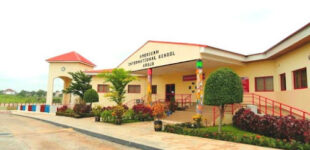
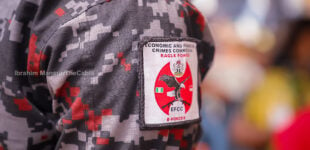



sigh